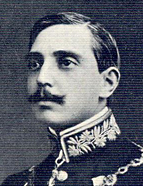

Augusto Palhinha da Costa Dias was a historian who, like others, encountered great difficulties in the exercise of his profession. From the end of the 19 th century and especially during the First Republic, the practice of historiography – in the etymological sense of the process of writing history – as the matrix of what defines a historian, was joined by the teaching of historical science, both in seminars and in classes at the then newly founded faculties of arts and other higher education courses. However, the authoritarian dynamics of the Military Dictatorship and th e period that followed the Estado Novo brought about a rupture. In fact, ideological reasons made it impossible for opponents to pursue any academic career. On the contrary, researchers who accepted or did not express opposition to the ideology of the conservative regime were able to continue their activities. Teaching was denied to people who wrote history, both in faculties and, sometimes, in secondary schools. Augusto da Costa da Dias is an example of this.
Costa Dias was born on 12 February 1919 in the village of Trouxemil, near Coimbra, into a middle-class family involved in small-scale farming and later in small trade. He was the second youngest of nine siblings, who spent their childhood in Arganil and then moved to Coimbra for their secondary education. His health was fragile due to a bone disease, which was aggravated by a fall in the Old Cathedral of Coimbra that left him almost disabled in one leg. As a result, his schooling, which was quite turbulent even when his family moved to Lisbon, was interrupted by prolonged stays in various sanatoriums, such as the one in Parede, near Lisbon. He began his secondary education in Coimbra and completed it in Lisbon. Alongside his studies, he worked in various fields: as an advertising agent, a salesman in his brothers’ company, Irmãos Costa Dias, Ldª (which he left at the end of the Second World War, when he completed his higher education), and an advertising executive at the company Êxito, where he worked with Alves Redol and Alberto Ferreira. Costa Dias enrolled in Historical and Philosophical Sciences at the Faculdade de Letras da Universidade de Lisboa [School of Arts and Humanities of the University of Lisbon ] , graduating in 1954 at the age of 35. Soon after, he applied for a career as a secondary school teacher. However, he was prevented from obtaining a position, as he was already being monitored by the PIDE ( the Portuguese secret police) due to his activities linked to the Portuguese Communist Party, in which he had begun his militancy at around the age of 20. Costa Dias remained a member of this party until the end of his life. He was responsible for promoting the membership of writers such as José Saramago and António Modesto Navarro in the PCP. One of his rare teaching experiences was evident in the creation of a study room for adults called “André de Resende”, which he promoted with Alberto Ferreira and José Marinho; but, to avoid any suspicion that could have prevented the establishment from opening, it was founded by their wives, using their maiden names. This meant that other aspiring teachers in similar situations, such as António Borges Coelho and others, were able to teach in this study room, doing something they weren’t allowed to do in official education.
This work is financed by national funds through FCT - Foundation for Science and Technology, I.P, in the scope of the projects UIDB/04311/2020 and UIDP/04311/2020.
